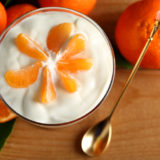

Despite frequently being responsible for a loss of life, heart disease is one of the most preventable types of illnesses we face. Eating a low-fat diet used to be the primary advice given to prevent heart disease, but our understanding of the cardiovascular system has expanded in recent years. Now, experts believe there are multiple factors contributing to heart disease – and just as many ways to maintain a healthy heart.
Heart Disease Causes
The leading cause of death for both men and women, the U.S. Centers for Disease Control and Prevention (CDC) attributes 25 percent of Americans’ deaths to heart disease. Researchers, scholars and physicians believe that heart disease is closely associated with damage to the inner lining of blood vessels – and plaque often builds up where the arteries have been damaged. Over time, plaque can harden or rupture, which either reduces the flow of blood to the heart or can cause catastrophic blockages.
Five of the more prominent aggravators of blood vessel linings include:
- Cigarette Smoke – Smoking (including secondhand smoke) causes carbon monoxide to accumulate in the blood, which robs the blood of oxygen and triggers a buildup of arterial plaque and blood clots.
- Elevated Blood Pressure – The force of blood pushing against the walls of the arteries as the heart pumps blood, elevated blood pressure stresses the entire cardiovascular system – including the lining of blood vessels.
- High Triglycerides and Low-Density Lipoproteins (LDL) in the Blood – These two types of fat in the bloodstream can be detrimental if excessive. These fats may cause inflammation within the blood vessels and can transport cholesterol to the heart’s arteries – clogging up the circulatory system.
- Stress or Depression – Experts concede that stress plays a role in heart disease. Being stressed, upset or angry can trigger arteries to narrow which raises blood pressure. Stress can also increase heart disease risk indirectly by causing some people to indulge in harmful activities such as smoking or overeating high fat and high sugar foods. In addition, depression triggers stress hormones, which can induce inflammation and plaque buildup in the arteries.
- High Blood Sugar – Diabetes is a metabolic disease in which the body’s blood sugar levels are too high due to an insufficiency of insulin or inability to use insulin properly. Insulin is a hormone that helps move blood sugar into cells, where it’s used for energy. Over time, high blood sugar levels can cause increased plaque buildup in the arteries. Pre-diabetes and insulin resistance are precursors to diabetes where blood sugar levels are elevated. Both pre-diabetes and insulin resistance increase the risk of heart disease.
Maintaining a Healthy Heart
The quest to maintain a healthy heart revolves around minimizing everything that aggravates the lining of the blood vessels. While the only way to reduce the health effects of smoking is to avoid secondhand smoke, never begin smoking or quit a current habit, the other major causes of heart disease can be mitigated with a commitment to lifestyle choices such as diet, relaxation and exercise.
Heart-Healthy Diet
Many have studied, examined, written about and practiced dietary approaches that foster a healthy heart, but eating a heart-healthy diet continues to be the single most challenging feat for many Americans. The tenements of a heart-healthy diet seem to include the following principles:
- Consume plenty of fiber from whole grains, fruit and vegetables
- Include plenty of lean protein in the diet
- Load up on antioxidants to prevent cellular damage
- Avoid saturated fat that raises triglycerides and LDL
- Minimize sugar intake




